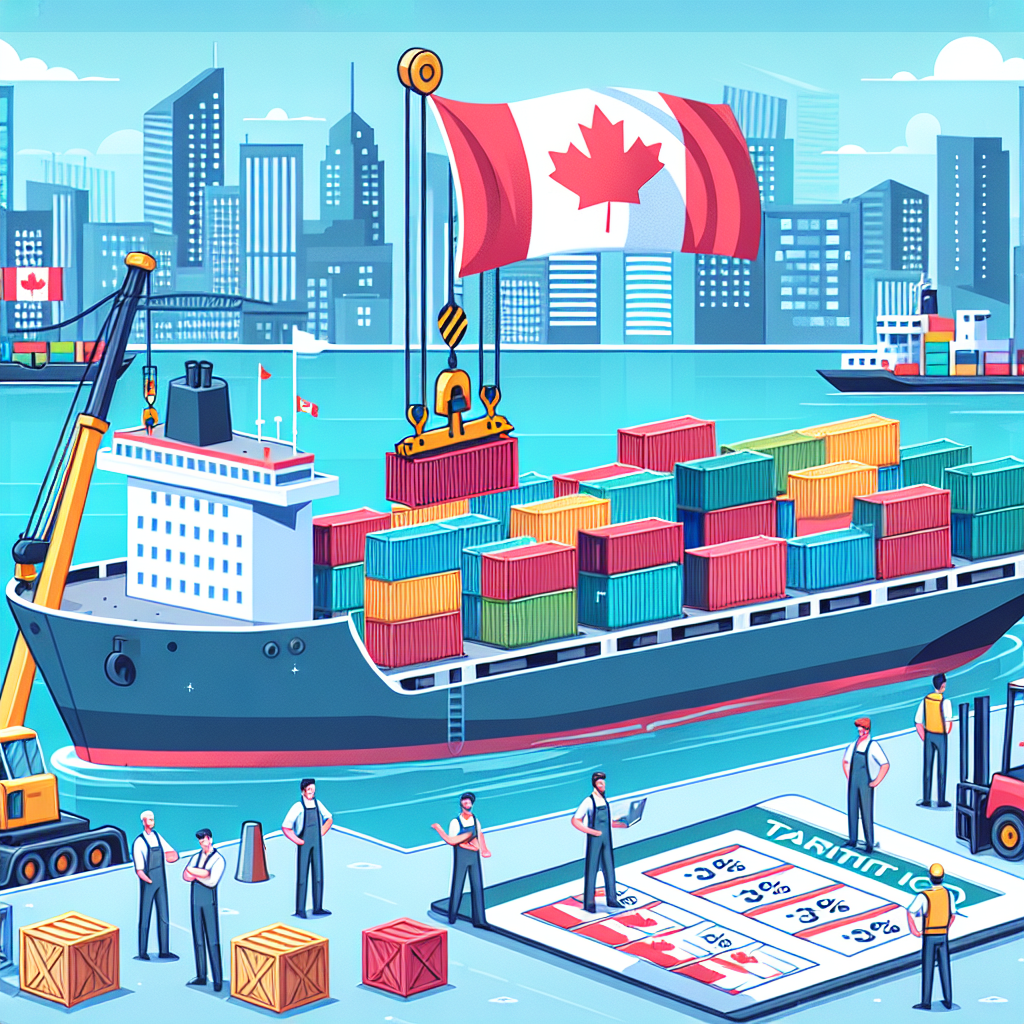Canada's Bold Move: High Tariffs on Chinese EVs and Metals to Counter Over-Capacity
Canada announced hefty tariffs on Chinese electric vehicles and metals to counter China's policy of over-capacity. The new tariffs, aligned with those of the U.S. and EU, aim to protect domestic industries and position Canada in the global EV supply chain. The move affects Tesla's import strategies.

Canada, following the lead of the United States, announced on Monday that it would impose a 100% tariff on the import of Chinese electric vehicles and a 25% tariff on imported steel and aluminum from China. Prime Minister Justin Trudeau explained that Ottawa was acting to counter China's intentional, state-directed policy of over-capacity, though he did not specify whether these tariffs would apply similarly to Tesla. Shares of Tesla decreased by over 3% following the announcement.
'I think we all know that China is not playing by the same rules,' Trudeau told reporters. The tariffs will be effective starting Oct. 1 this year. 'What is important about this is we're doing it in alignment and in parallel with other economies around the world,' Trudeau added, speaking on the sidelines of a three-day closed-door cabinet meeting in Halifax, Nova Scotia.
The Chinese embassy in Ottawa did not immediately comment. Ottawa plans to continue working with the United States and other allies to ensure global customers are not unfairly penalized by the non-market practices of countries like China, Trudeau said. He also mentioned looking at additional punitive measures such as tariffs on chips and solar cells without providing specific details.
U.S. President Joe Biden had earlier announced higher tariffs on Chinese electric vehicles, semiconductors, solar cells, lithium-ion batteries, and other strategic goods in an effort to protect companies from Chinese overproduction. The European Union has also imposed tariffs on EV imports, aimed at positioning Canada as a crucial part of the global EV supply chain, under domestic industry pressure to act against China.
China is Canada's second-largest trading partner, trailing the United States. The port of Vancouver reported a 460% annual increase in automobile imports from China in 2023, mainly due to Tesla's Shanghai-made EVs. Tesla's vehicle identification codes revealed exports of the Model 3 and Model Y from its Shanghai facility to Canada.
Seth Goldstein, equity strategist at Morningstar, suggested that Tesla might shift its logistics to export vehicles from the U.S. in response to the tariffs. 'The market is likely reacting to the tariffs and weighing a potential profit impact if Tesla has to export vehicles to Canada from its higher-cost production base in the U.S.,' Goldstein said.
While the EU imposed new tariffs on Chinese EVs, they levied a reduced rate on Tesla at 9%, compared to 36.3% on other Chinese imports. Canada has signed multi-billion-dollar deals with top European automakers to strengthen its manufacturing heartland as part of the global EV supply chain. 'We feel vindicated and motivated. Let's now get to the business of defending our market with the best of Canadian innovation and resolve,' Flavio Volpe, president of the Automotive Parts Manufacturers' Association, said in an email.
U.S. tariff implementation has been postponed until September with potential softening of the planned duties this week.
(With inputs from agencies.)
ALSO READ
ANALYSIS-'Windfall' fees now less likely for lawyers who sued to cut Musk's Tesla pay
Wall Street Soars: Tesla and Amazon Spearhead Market Rally amid Fed Rate Cut Speculations
Tesla's Modest Gain in August EV Sales, Rival BYD Surges
Tesla to Launch Six-Seat Model Y in China Amidst Increasing Domestic Competition
Fire Erupts at Nepal's First Tesla Service Showroom in Kathmandu










